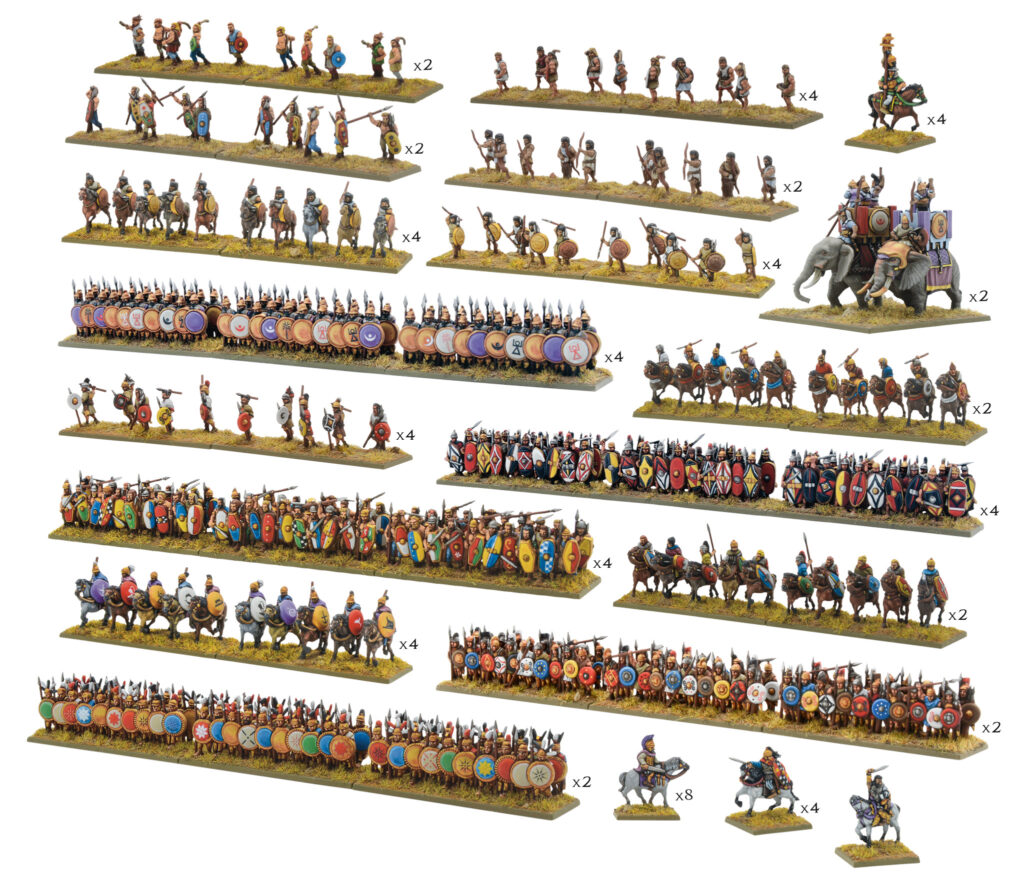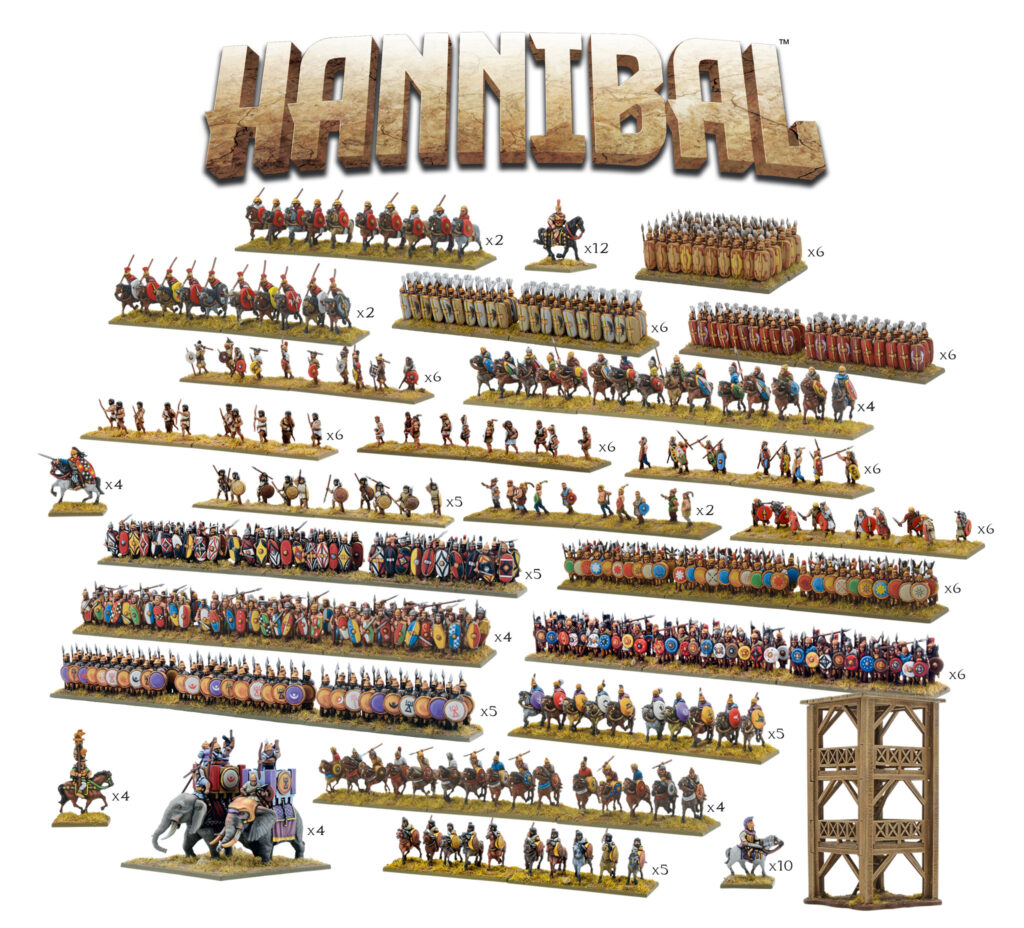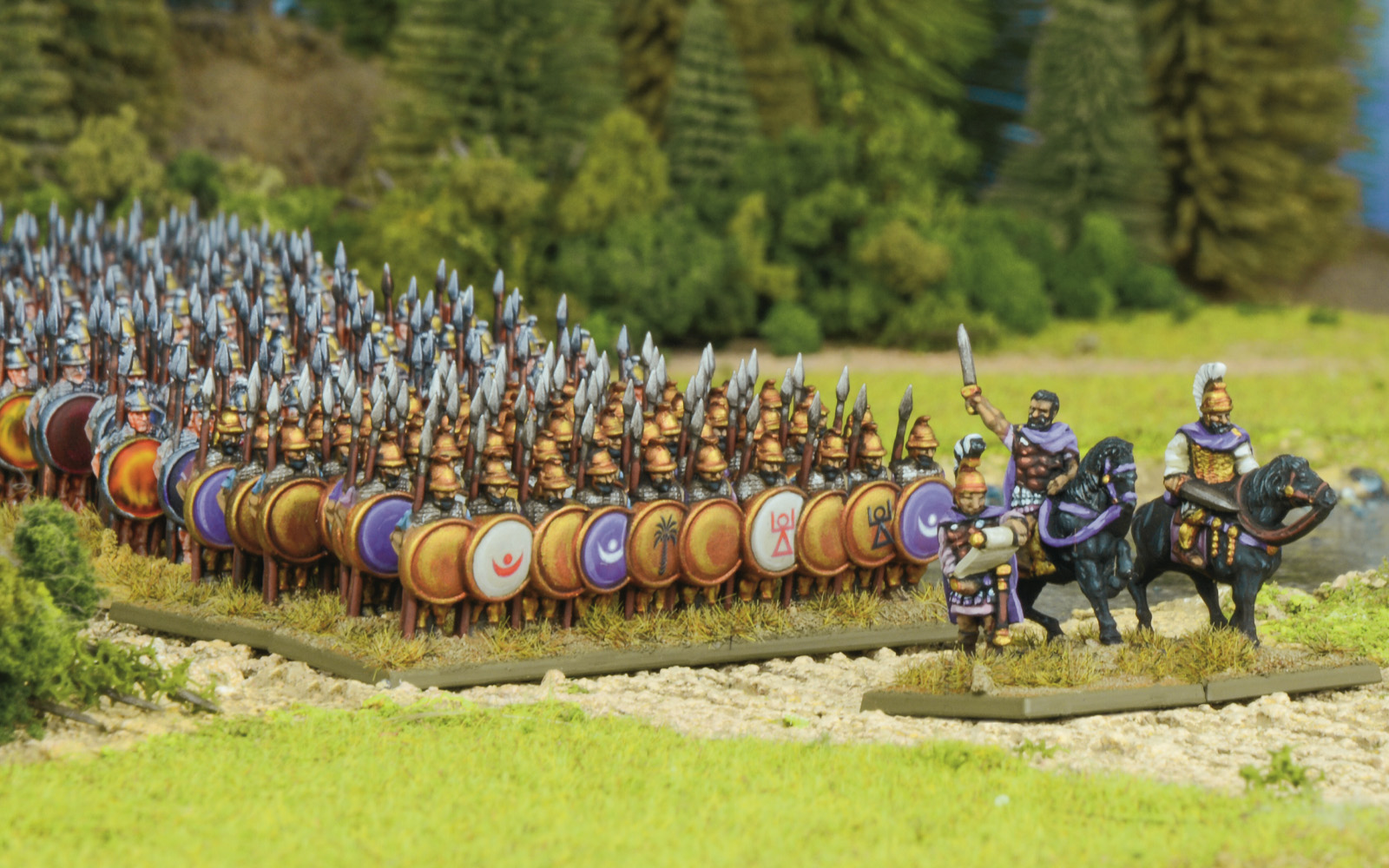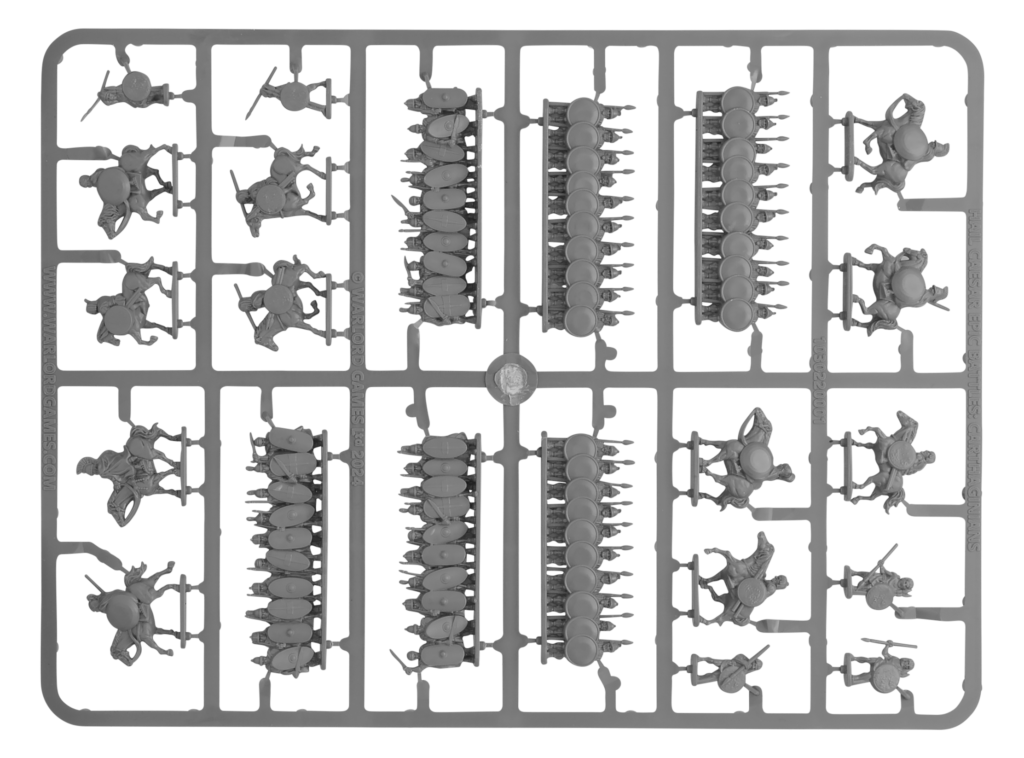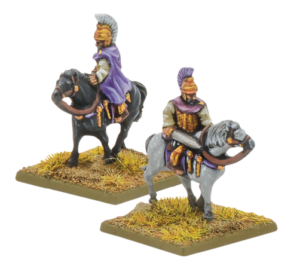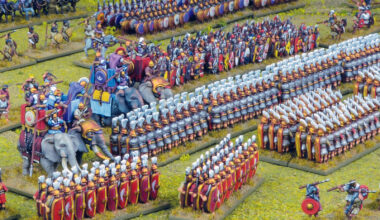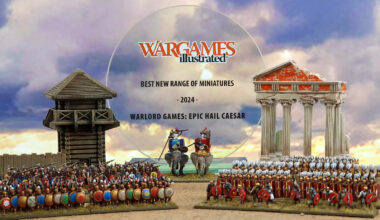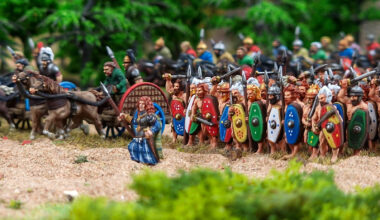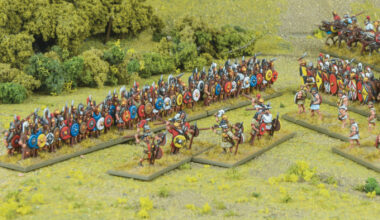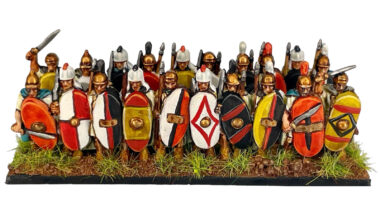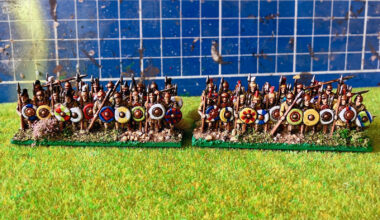We’ve looked at the Romans, we’ve looked at the elephants, and that means it’s time to look at the brand-new Carthaginian sprue, coming soon with the launch of Hail Caesar Epic Battles: The Punic Wars! Someone needs to put the Romans in their place (that place being back in Italy, not causing any trouble), and these are just the chaps to do it! Carthaginian forces contained a diverse variety of troops from across the Mediterranean and North Africa, some subjects of Carthage, and others mercenaries fighting for pay. This is a great opportunity to build a force that stands in stark, colourful contrast to the serried ranks of Roman infantry!
Unlike the massed ranks of the Roman Legions, the Carthaginian forces didn’t fight in quite such tight formations (to the best of our knowledge – it’s not like there are any reference photos, after all!), so the standard Epic Battles strip system works perfectly well for their infantry units, giving the impression of a dense block of troops, but not quite as shoulder-to-shoulder as their Roman foes. This lets you really go to town on the fantastic detail present on the varied troops of the Carthaginian army, while still representing the huge number of troops arrayed for battle!
Like the Roman sprue, you get rank-and-file, skirmishers, cavalry, and a commander on each Carthaginian sprue – let’s dive in! We’ll start with the infantry, of which you’ll find two types in ranks, alongside a bevy of individual skirmishers.
First up, with their oval shields and distinctive cloaks, we have the Spanish Scutarii. These Celto-Iberian medium infantry, equipped with a mixture of swords and spears, are excellent line troops who can be relied upon to go toe-to-toe with Roman Hastati and form the core of your battleline. Their eponymous scutum shields give them excellent protection – so good, in fact, that the Romans copied them for themselves – while their fearsome falcata swords are lethal at close quarters. No Carthaginian force should be without several big blocks of these Spanish warriors anchoring their battleline – which is why there are three strips of them on every Carthaginian sprue! With plenty of real estate on their cloaks and shields, these soldiers are a painter’s dream, and will look absolutely fantastic on the tabletop without too much effort at all!
The second type of infantry found on the Carthaginian sprue are the Libyan ‘heavies’. Hailing from the Carthaginian heartland of North Africa, these elite spearmen are clad in chainmail and bearing round shields are just what you need when the Romans fall back on their Principes and Triarii, being more than capable of holding their own in even the thickest fighting. As befits some of the very best infantry available, your Libyans should be at the heart of your battleline, ready to hold against Roman attacks or advancing behind the terrifying might of your war elephants (did we mention that the Carthaginians get elephants?). With their bronze shields, greaves, and helmets shining in the Mediterranean sun, a unit (or three, or four, or five…) of Libyan heavy infantry has an imposing presence, and is certain to stand out on the tabletop amongst their allies.
The final infantry on the sprue are your individual Numidian skirmishers – five of them, to be exact! The Numidians were renowned for their mastery of hit-and-run warfare, and the hardy North African warriors would see service with many forces over their kingdom’s history. Unarmoured, with only a round oxhide shield for protection, and equipped with javelins, they make for ideal skirmishers to screen your advancing forces and deal with those pesky Velites, but take care to keep them away from enemy cavalry!
Alongside their brethren on foot, we find five mounted Numidians. Perhaps the quintessential Numidian soldiers, these men are superb horsemen and the perfect unit for harrying the enemy flanks, running down skirmishers and fleeing units, or distracting your foe with their lightning raids. You’ll definitely want to keep them away from protracted combat, as they lack the armour or staying power for this kind of work, but used properly they can be an absolute nightmare for the enemy to pin down and neutralise. Equipped exactly like their infantry comrades (apart, of course, from the horse!), they’re the last thing any Roman general wants to see sniffing around the fringes of a battle!
The final figures on the sprue are the cream of the crop – Liby-Phoenician cavalry! These wealthy, well-equipped men are your big hitters on the battlefield, capable of getting stuck in and dishing out plenty of punishment with their spears, and surviving a beating in return thanks to their armour and large shields. Equipped in a rather Hellenistic fashion with scale armour, they provide great all-round service against a wide variety of enemies. Although they can struggle against really heavy cavalry, when used judiciously (particularly if you can utilise your infantry to pin the foe in place and your skirmishers to slow down reinforcements) they can absolutely turn the tide of battle in your favour – and look incredibly fancy while doing so!
Finally, there’s also a suitably noble Carthaginian commander included on the sprue. With his helmet plume and cloak, there’s no mistaking who’s in charge of the division, and if you find yourself with a surfeit of officers, he also fits right in with his fellow upper-crust types as a Liby-Phoenician. He’s also a fantastic opportunity to really go to town with your painting – between his armour, flashy helmet, and barded horse, he can be an absolute riot of colour!
And there you have it! This is just one of the new sprues that a Carthaginian General can call upon. We’ll take a closer look at the Gallic Celt and Allied Troops sprues in future articles!
Carthaginian Division
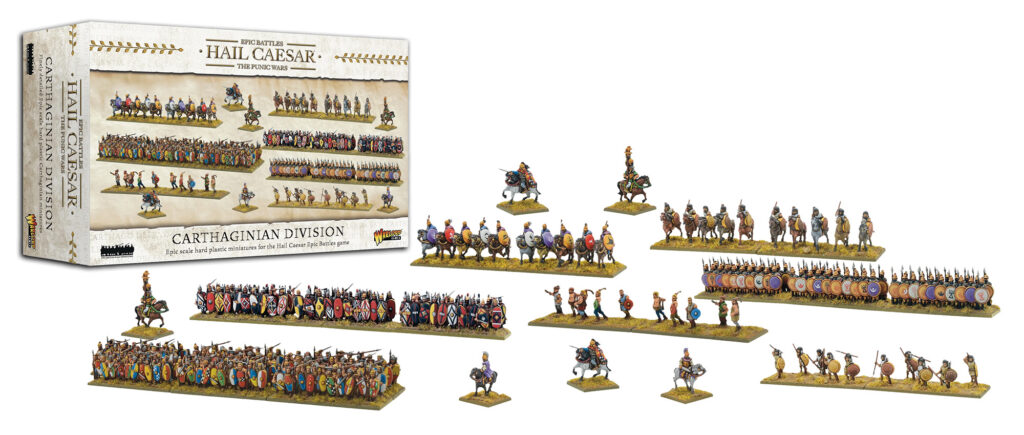
Hannibal Barca’s Carthaginian Army
